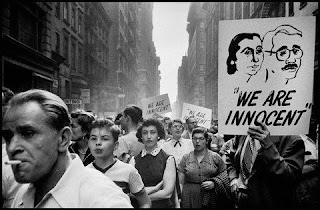By Erin Weir
Rabble.ca
The greatest tragedy in BHP Billiton's $38.6-billion (U.S.) bid for the Potash Corporation of Saskatchewan (PCS) is that the Government of Saskatchewan previously sold PCS for just $630 million. This privatization was the worst fiscal decision in the province's history and has been aggravated by subsequent royalty giveaways to private potash companies.
PCS was created in 1975 as a provincial Crown corporation. The Saskatchewan government privatized it in 1989, selling all of its shares by 1994.
Presumably, the proceeds were deducted from the provincial deficit. Borrowing $630 million at 10 per cent interest, compounded over two decades, would have added $4.2-billion of provincial debt by now.
In fact, provincial bond rates have fallen far below 10 per cent since the early 1990s. Also, had PCS shares not been sold, dividend payments to the government would have partly offset interest charges on its additional borrowing. Therefore, $4.2-billion is a very optimistic estimate of privatization's fiscal benefit.
The fiscal cost of privatization is the amount that PCS would be worth had it remained a Crown corporation. Since privatization, PCS has acquired additional potash mines in Saskatchewan and New Brunswick, phosphate and nitrogen facilities in the U.S. and Trinidad, and shares in other fertilizer companies.
During the 1990s, Crown corporations were encouraged to invest outside the province. Therefore, PCS could have made the same acquisitions and developed along the same lines had it remained a Crown corporation. If so, the fiscal cost of privatization is at least $40-billion (the Canadian-dollar value of BHP's offer), which is about 10 times the maximum fiscal benefit.
Of course, privatization supporters would claim that PCS has been better managed as a private company. Had it remained a Crown corporation, PCS might have lacked the initiative or financial ability to expand.
 Dilma Rousseff has been elected president of Brazil, succeeding Luiz Inacio Lula da Silva, electoral officials have confirmed.
Dilma Rousseff has been elected president of Brazil, succeeding Luiz Inacio Lula da Silva, electoral officials have confirmed.












































